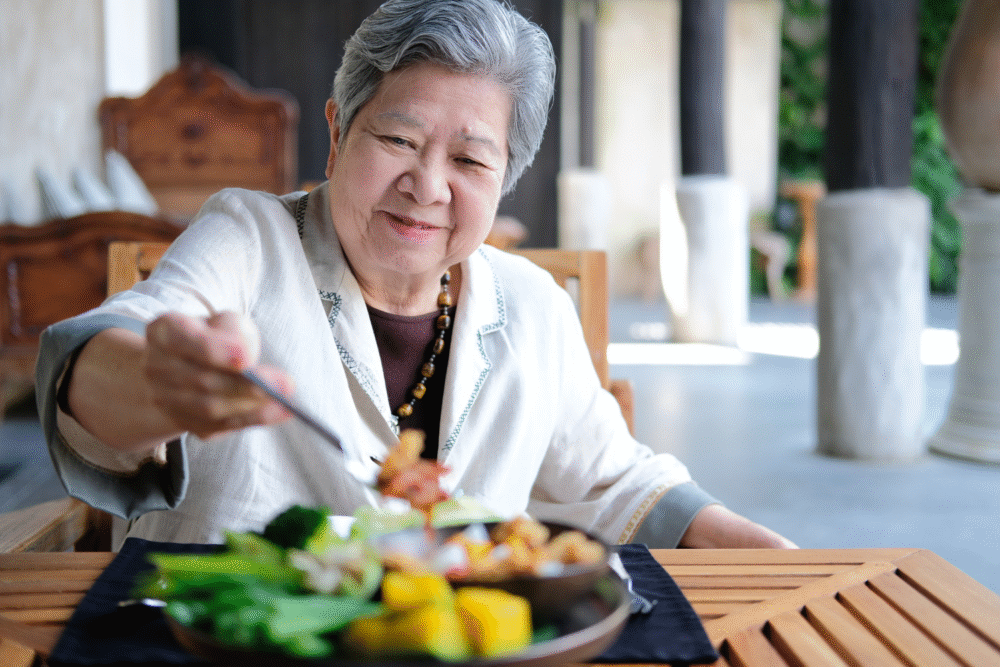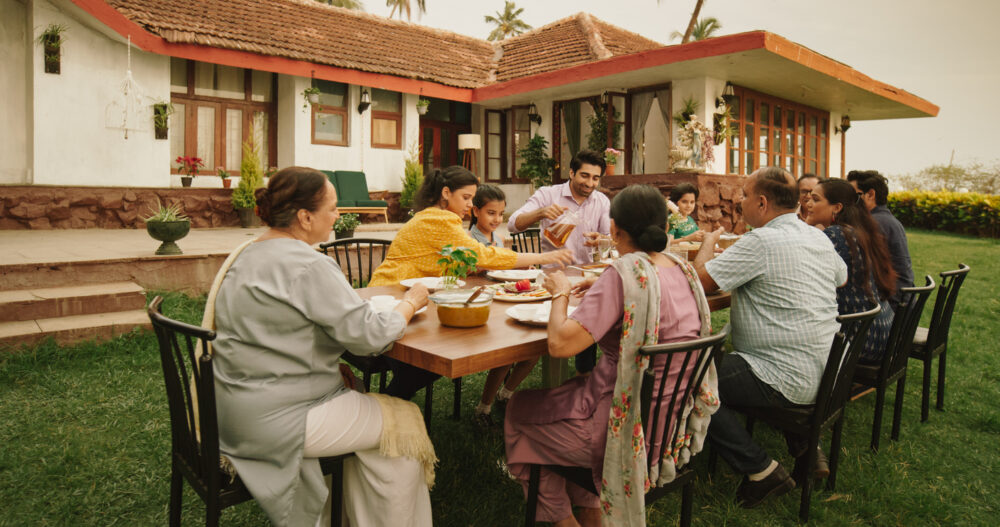Explore key Japanese daily practices linked to longer life and improved well-being.

Japanese longevity is often attributed to a combination of daily habits that focus on holistic health. These include mindful eating, regular physical activity, strong social connections, and consistent sleep routines. Integrating these balanced lifestyle choices promotes not only physical vitality but also mental and emotional resilience. Understanding and adopting such practices can support healthier aging and a more fulfilling life.
1. Practice mindful eating by savoring each bite slowly and fully.

Mindful eating involves paying close attention to the experience of eating, savoring textures and flavors with each bite. This practice, common in Japan, encourages people to eat slowly, fully engaging with their meal. Enjoying meals this way can enhance satisfaction and promote healthier eating habits.
Such an approach helps with portion control, as it gives the body time to signal fullness. In Japan, meals often include a variety of small, thoughtfully prepared dishes, inviting one to appreciate each ingredient. This reinforces a balanced relationship with food, supporting overall health and well-being.
2. Incorporate regular physical activity through walking and light stretching.

In Japan, walking is not merely exercise but a way of life, seamlessly woven into daily routines. This gentle physical activity, along with stretching, keeps the body agile and fosters cardiovascular health. Urban spaces often feature pedestrian-friendly areas that encourage strolling.
Regular, moderate activity also supports mental health by reducing stress and enhancing mood. In cities like Kyoto, winding pathways through temples and gardens create serene spaces for movement. Such settings nourish both body and spirit, offering a holistic approach to physical well-being.
3. Prioritize quality sleep with a consistent bedtime routine every night.

Consistent, quality sleep serves as a cornerstone for health and longevity. In Japanese culture, sleep hygiene emphasizes establishing a regular bedtime routine to ensure restorative rest. Repeated rituals, like quiet tea time or light reading before bed, signal to the body that it’s time to unwind.
A good night’s sleep replenishes energy, supports immune function, and improves mental clarity. The rhythm of consistency helps regulate circadian cycles, ensuring the body’s internal clock stays aligned. This commitment to rest underscores its vital role in maintaining holistic health.
4. Maintain strong social connections with family and close community members.

Strong social connections form an integral part of Japanese longevity practices. Family gatherings, community events, and group traditions foster close-knit relationships. These interactions are not just pleasant; they offer a critical support network that promotes collective well-being, contributing to a sense of belonging.
The longevity associated with these connections highlights the impact of emotional health on physical vitality. Shared experiences strengthen bonds, and communities become sources of encouragement and resilience. Such relationships underscore the holistic view that well-being extends beyond individual pursuits to include social dynamics.
5. Embrace a balanced diet rich in vegetables, fish, and fermented foods.

Japanese cuisine prioritizes balance, featuring meals rich in vegetables, fish, and fermented foods like miso and pickles. This dietary pattern supports cardiovascular and digestive health. The traditional diet incorporates a variety of nutrient-dense ingredients, celebrated for both their flavor and health benefits.
Such balanced meals don’t just enhance physical well-being; they also nurture the mind. The diversity of foods ensures a wide range of vitamins and minerals that bolster bodily functions. This culinary approach underscores the connection between nutrition and longevity, marrying taste with nourishment.
6. Cultivate a sense of purpose that provides daily motivation and joy.

Cultivating a sense of purpose forms a cornerstone of daily life, inspiring motivation and fostering resilience. In Japan, ikigai, or “life worth,” encapsulates finding joy in everyday pursuits. This concept encourages individuals to pursue activities that resonate deeply with personal values and passions.
The benefits of a sustained purpose extend beyond self-fulfillment, impacting health positively by reducing stress and promoting longevity. The focus on meaningful engagement supports mental well-being, illustrating the profound impact of purpose-driven living on life satisfaction.
7. Engage in daily practices of gratitude to promote mental well-being.

Gratitude practices infuse life with positivity, enhancing mental well-being and promoting emotional balance. In Japan, acknowledging simple joys and expressing thanks are integral to daily routines. This practice can shape one’s outlook, encouraging a focus on the present moment and the abundance it offers.
A grateful mindset contributes to reduced stress and increased life satisfaction. Daily expressions of appreciation foster resilience, providing a buffer against challenges. These practices underscore the connection between emotional health and overall well-being, emphasizing gratitude’s role in a fulfilling life.
8. Reduce stress by spending time in nature and practicing deep breathing.

Spending time in nature and practicing deep breathing mitigate stress and enhance relaxation. In Japan, forest bathing, or shinrin-yoku, involves immersing oneself in the outdoors to rejuvenate the senses. Such exposure calms the mind and refreshes the spirit, promoting peace.
The practice of breathing deeply, when combined with nature, heightens the relaxing effect. Fresh air, along with tranquil surroundings, nurtures a profound sense of calm. These habits highlight the natural world’s healing power, illustrating its role in stress reduction and mental clarity.
9. Keep the mind active with hobbies like reading and traditional crafts.

Keeping the mind active remains crucial for longevity. Engaging in activities like reading or traditional crafts offers mental stimulation and cognitive exercise. In Japan, hobbies such as calligraphy and origami not only provide artistic outlets but also sharpen focus and creativity.
Frequent mental engagement supports memory and problem-solving skills, essential for maintaining mental agility with age. These pursuits offer relaxation and intellectual challenge, illustrating the important link between ongoing learning and cognitive health. This balanced approach nurtures both the intellect and the imagination.
10. Limit portion sizes to avoid overeating and maintain healthy digestion.

In Japan, portion control plays a significant role in promoting health by preventing overeating. Meals often come in smaller, balanced servings, encouraging mindful consumption. This practice supports healthy digestion and weight management, aligning closely with the principle of mixing satisfaction with nourishment.
The focus on moderation contrasts starkly with common approaches that value abundance. Smaller portions allow savoring flavors without excess, aiding in digestion and nutrient absorption. Such habits mirror the philosophy of balance, emphasizing quality and satisfaction over quantity for well-being.
11. Practice regular handwashing and personal hygiene for overall health support.

Regular handwashing and personal hygiene support health in practical, preventative ways. The Japanese tradition of cleanliness, seen in public handwashing stations and personal habits, helps reduce the spread of illness. Hygiene practices reinforce health by creating barriers to infection, underlining the importance of simple, effective actions.
Attention to cleanliness extends beyond personal habits, influencing communal well-being. Shared environments benefit from such diligence, promoting a collective health-conscious culture. These everyday practices illustrate the far-reaching impact of hygiene on individual and public health.
12. Adopt a positive outlook that fosters resilience and emotional balance.

A positive outlook nurtures emotional balance and resilience, fostering adaptability in challenging situations. In Japanese culture, maintaining a hopeful attitude, despite life’s ups and downs, contributes to overall well-being. The practice of optimism encourages staying open to possibilities and growth.
A hopeful perspective enhances mental health by boosting mood and reducing stress. This ingrained outlook encourages perseverance, providing a psychological buffer during difficult times. Staying positive supports a resilient spirit, underscoring its essential role in navigating life’s complexities with grace.
